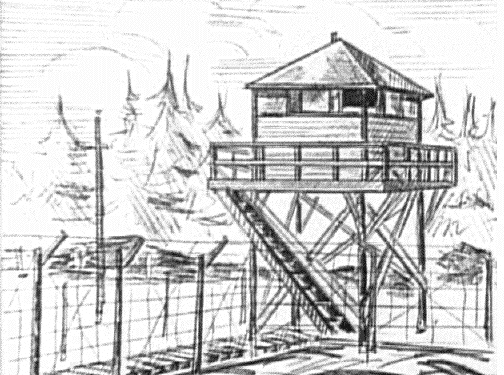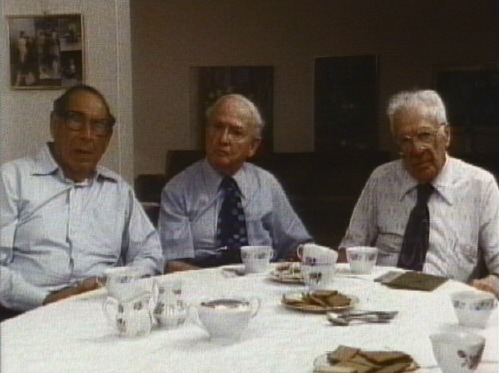Both Sides Of The Wire

48:00 minutes, 1993
Produced & directed by Neal Livingston
Based on the book by Ted Jones
Music: Who By Fire by Leonard Cohen
Available on DVD.
An hour long documentary which chronicles the experiences of Austrian and German refugees, the majority of whom were Jewish, that had come to England to escape Nazi oppression, only then to be deported and interned in Canada as "dangerous enemy aliens."

Early in the summer of 1940, with the Battle of Britain underway in the skies and the German army preparing for an invasion, the British government gave in to the xenophobia of the military and other influential groups, and ordered the arrest of all German and Austrian refugees. Many of these refugees were Jews, and thousands of them were shipped out of Britain that summer to be interned in P.O.W. camps in Canada and Australia. The Canadian government, with its restrictive refugee policy of that period, had agreed to accept prisoners of war. However when the first of these men arrived at Camp "B" in New Brunswick the Canadians quickly realized that they were not the Nazi P.O.W.'s they expected, but rather civilians refugees - students, professors, businessmen, and even priests and rabbis.

Though these internees from Camp "B" were technically treated humanely, they were held as prisoners in barb wire camps for up to three years. Their loyalty was constantly questioned and all aspects of their lives were restricted. The authorities preferred to let groundless fears determine their refugee policy, rather than face up to the reality that these men were being held for no reason. Despite overwhelming adverse conditions Camp "B" did manage to develop a remarkably rich cultural and intellectual atmosphere. These internees were able to persevere with determination and a surprisingly rich sense of humor. By the end 1943 all of these men were freed, although the process was usually made difficult by official foot-dragging, scarcely concealed anti-Semitism and a repressive refugee policy.

Both Sides Of The Wire is about a group of these former internees from Camp "B", as seen through who these men are today, and what they have done with their lives since this experience. Many have resettled in Canada, the U.S., and England where they have achieved prominence in the field of business, science, academia and the arts. Through intimate, and even entertaining portraits of these surviving internees, guards and others associated with the camp, as well as the use of private and public diaries and archive materials, this documentary evokes and assesses the effect this experience had on their later lives.
Both Sides Of The Wire explores what it means both physically and emotionally to be a refugee in this "a century of refugees", and how these men were able to thrive in a seemingly hostile environment.
"One of the most amazing Canadian documentaries of the year is surely Both Sides of the Wire, a 47-minute account of life in a Canadian prisoner of war camp. But in this case the prisoners were not enemy soldiers, but refugees from Nazi Germany, many of them Jews.
"Filmmaker Neal Livingston has fashioned a compassionate and often sad story of how the refugees found themselves at a bleak camp deep in the New Brunswick Forest east of Fredericton."
- Jim Bawden, Toronto Star, October 30, 1993.
| Home | Current Titles | Contact Black River | Profile | Order |